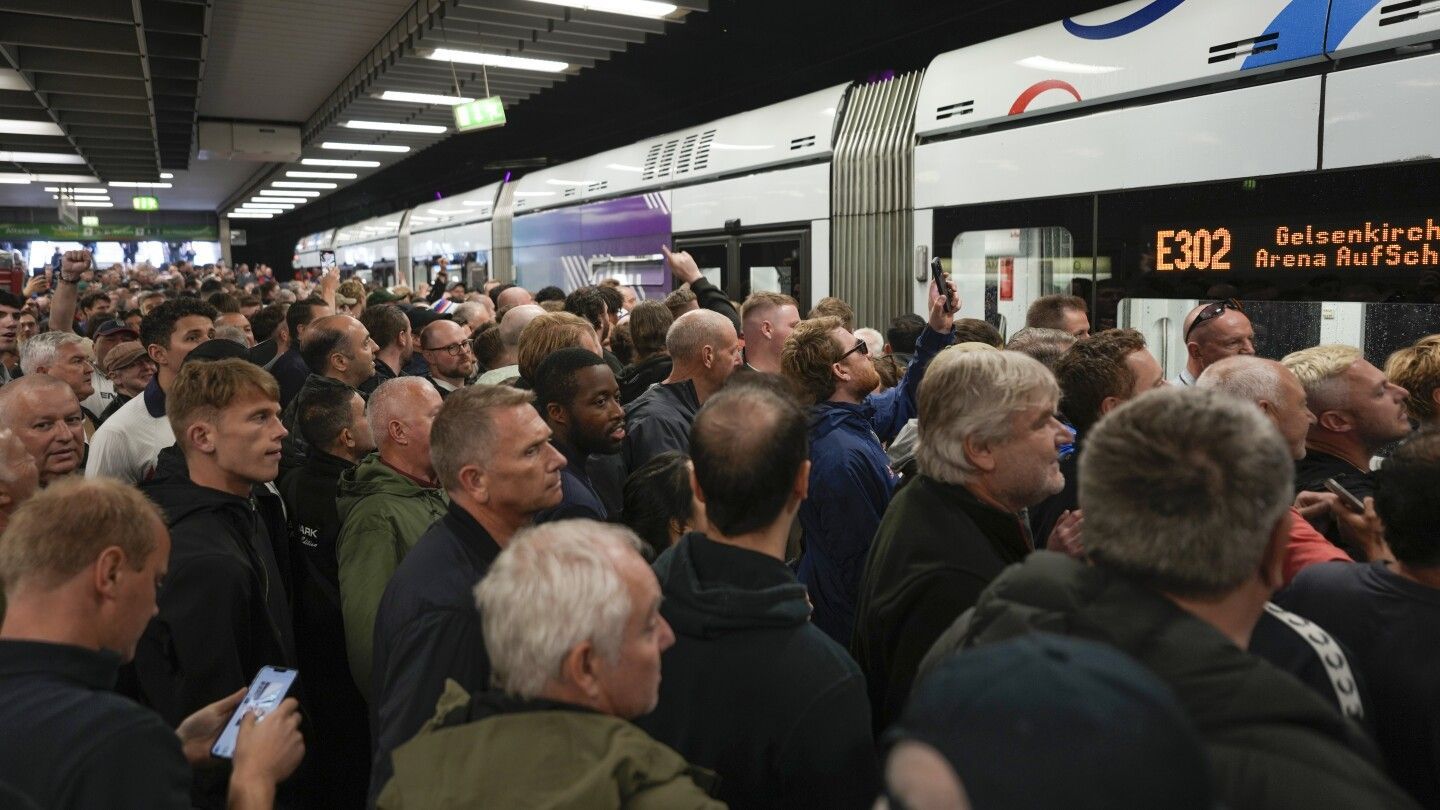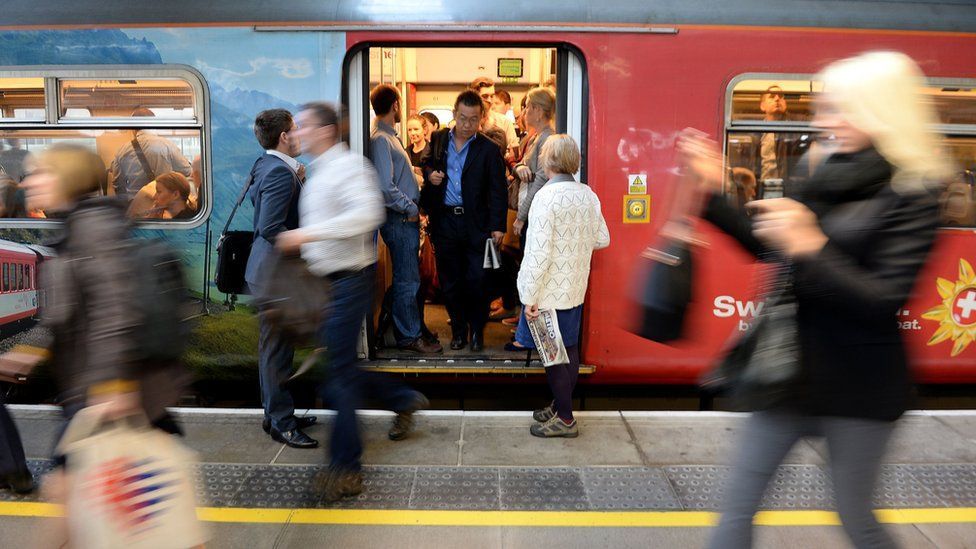The opportunities associated with engaging with the business community to promote active and sustainable travel
Building on last week’s blog about managing everyday travel demand during events, we highlighted the importance of engaging the business and industry sectors. For event planners and local authorities, business engagement is a crucial aspect of promoting sustainable travel, both in general and within the context of events. Businesses have the potential to influence travel behaviours at scale, making them key partners in ensuring that people travel efficiently, sustainably, and with minimal disruption to transport networks.
In addition to accommodating employees, businesses also play a significant role as attractors and generators of servicing and delivery trips. These types of trips, often linked to supply chains, logistics, and customer servicing, can contribute to peak travel periods or specific congestion points. By engaging with businesses to better understand their travel and delivery needs, local authorities can coordinate infrastructure, optimise delivery schedules, and implement measures to mitigate any negative impacts on the transport system.
Furthermore, businesses can adopt sustainable practices such as promoting consolidation centres for deliveries, using electric vehicles for last-mile distribution, or encouraging flexible delivery times to reduce congestion during busy periods. As major employers and economic drivers, businesses are well-placed to take a proactive role in shaping travel patterns, making it essential that they are integrated into wider planning efforts to create more sustainable and efficient transport systems, especially in the lead-up to and during events.
The benefits of business engagement
Leveraging business influence
A key benefit of collaborating with businesses is their extensive reach. Companies have direct access to employees and customers who make daily commuting choices and frequent visits, allowing them to seamlessly integrate sustainable travel messaging into existing communication channels. This helps to introduce and normalise new behaviours more effectively.
As highlighted in our previous blog, business engagement plays a crucial role in managing travel demand during events, as many coincide with regular commuting hours. This makes collaboration with local employers and industries essential to easing pressure on the transport network. In this context, working with businesses could involve promoting flexible working arrangements, such as adjusting commuting times to avoid peak event periods, encouraging hybrid working to reduce travel demand, and rescheduling deliveries to prevent congestion.
A cost-effective approach
For local authorities, engaging businesses in sustainable travel initiatives often proves to be a highly cost-effective strategy. Companies already have established communication channels, like internal and external newsletters, intranet updates, and social media platforms, which can be leveraged to share sustainability messages without the need for significant marketing budgets. Many businesses with their own sustainability objectives are also more likely to invest in initiatives that align with those goals, leading to mutually beneficial partnerships. Local authorities can tap into these existing networks and resources, significantly lowering the cost of public outreach campaigns.
Enhancing corporate social responsibility (CSR)
For businesses, engaging employees and visitors in conversations around sustainable and active travel yields a host of advantages. Not only does it directly support sustainability goals, but it also helps to position companies as leaders in corporate social responsibility (CSR). A company that actively promotes sustainable commuting and travel options for employees and encourages eco-friendly travel behaviours can attract more talent, gain sponsorships, and build stronger relationships with stakeholders. In a recent Nielson global survey, just over 8/10 (81%) consumers have said that it’s important that companies implement programmes to improve the environment, with around 3 in 4 (73%) saying that they would change their habits to reduce their impact on the environment. These findings indicate a significant proportion of consumers are aligning their purchasing decisions with brands that demonstrate strong environmental credentials. By fostering an active dialogue about sustainable travel within their workforce, businesses are aligning themselves with growing consumer preferences and differentiating themselves in a competitive market.
Challenges in engaging businesses
Competing priorities
Many organisations place immediate business objectives ahead of sustainability initiatives. Without clear incentives or alignment with corporate goals, sustainable travel may be neglected. Our experience in working with businesses on this issue underscores the need to secure senior leadership support and collaborate with teams across operations, transport, sustainability, and communications. By showcasing the benefits of sustainable travel at all levels, organisations are more likely to embrace these initiatives, streamlining approval processes and integrating them into everyday operations.
Resistance to change
Even when businesses back sustainable travel, shifting habits, whether that’s employees, customers or visitors, can be a significant challenge. Established travel and commuting patterns, reliance on personal vehicles, and perceived inconvenience often create resistance. Encouraging behavioural change is generally more effective when it coincides with broader organisational shifts, such as relocating or onboarding new employees. Supporting this transition with incentives like mobility credits, loyalty schemes, and pledges, alongside clear communication on the benefits, such as faster, cheaper commutes and improved physical and mental well-being, can help drive adoption.
Variability in business commitment
Commitment to sustainable travel varies significantly across organisations. While some take proactive steps towards sustainability, others require substantial persuasion and support before committing to action. In these cases, it is essential to emphasise the broader, more immediate benefits that go beyond sustainability. These might include operational efficiencies, cost savings, and enhanced commercial attractiveness.
For instance, reducing the demand for car parking spaces can result in substantial savings on infrastructure and land use. Minimising traffic congestion can not only improve staff and customer experiences but also boost the overall productivity of the organisation. By framing sustainable travel in terms of tangible, bottom-line benefits, such as improved efficiency and greater investment potential, organisations are more likely to see it as a strategic advantage and be motivated to engage.
Our experience
A standout example of successful business engagement is our recent partnership with Solent Transport. As part of this local authority collaboration, we contributed to the Breeze for Business programme, working with local organisations to promote the Breeze app, a Mobility-as-a-Service (MaaS) platform designed to encourage sustainable travel choices. By engaging with organisations, we helped raise awareness and boost adoption of both the app and sustainable transport among their staff and customers, showcasing the impact that business involvement can have in driving meaningful change.
We provided one-to-one support and guidance to organisations and business intermediaries across South Hampshire on how to integrate the promotion of Breeze within their operations. This included supplying pre-written communications, suggesting ways and locations to promote sustainable travel, assisting in the organisation of sustainable travel roadshows and events, and providing digital promotional materials and collateral.
Through the Breeze for Business programme, 20 organisations across the South Hampshire region committed to promoting Breeze independently on an ongoing, long-term basis, without requiring one-to-one support. A comparison of pre- and post-programme surveys revealed that over a third of employees in engaged organisations were aware of the Breeze app, compared to just 7% in non-engaged organisations. This demonstrates the effectiveness and impact of collaborating with organisations to drive engagement with initiatives.
Beyond this local authority example of collaboration with businesses, In the Round has had extensive involvement in business engagement programmes linked to major sporting events over many years. This includes the London 2012 Olympics, the Gold Coast 2018 Commonwealth Games, and the 2017 UEFA Champions League Final. Within the major events sector, the objectives of business engagement have differed slightly from those outlined above, though the fundamental approach remained the same. The focus is on integrating the event into the host location and working with businesses to adjust their transport operations temporarily to help manage travel demand during the event. These efforts led to a similar outcome, with around a third of behaviours shifting due to business engagement initiatives.
For more insights into these marketing and communication campaigns, visit our previous blog here.
Top 10 recommendations for future business engagement
For organisations looking to engage businesses in sustainable travel initiatives, there are a range of opportunities which we recommend including:
- Building strong business cases – Demonstrating how sustainable travel benefits companies, from cost savings to improved employee wellbeing and retention.
- Tailoring messaging – Aligning travel initiatives with business goals, whether through CSR, operational benefits, employee health, or financial benefits.
- Consistent communication – The need for regular communication and engagement with organisations to provide support, suggest ways to promote initiatives, and ensure travel communications remain a priority.
- Leveraging existing communication channels – Utilising company intranets, newsletters, and social media to promote initiatives efficiently.
- Providing incentives – Introducing mobility credits, travel discounts, workplace travel plans, and benefits schemes to encourage behaviour change.
- Hosting events and roadshows – Bringing sustainable travel to life through onsite events that allow employees and customers to engage directly with transport providers and solutions.
- Marketing and communication toolkits – developing toolkits containing resources and materials for internal teams, including pre-written communications, social media assets, posters, and templates, to help remove internal barriers.
- Encouraging and supporting workplace champions – Identifying and empowering internal advocates who can promote sustainable travel within their organisation and drive initiatives forwards.
- Collaborating with business intermediaries – alongside individual organisations, working with with business intermediaries and utilising their networks can be valuable in developing strong networks for business engagement.
- Encouraging businesses to participate in networks – businesses benefit from peer-to-peer support and working with neighbouring organisations. Galvanising that joint working is key, as is becoming part of national initiatives including Modeshift’s STARS scheme as an example.
By fostering strong relationships with businesses and addressing potential challenges proactively, event planners and local authorities can create impactful, long-term sustainable travel initiatives.
Engaging with businesses is not just a means of encouraging greener travel; it is also a strategic approach to enhancing corporate reputation, easing congestion, and benefiting local communities.
From events to everyday operations, In the Round has long championed and supported business engagement initiatives. We would be delighted to share our insights and collaborate to strengthen business engagement in your strategies; please get in touch at hello@intheround.global.
















